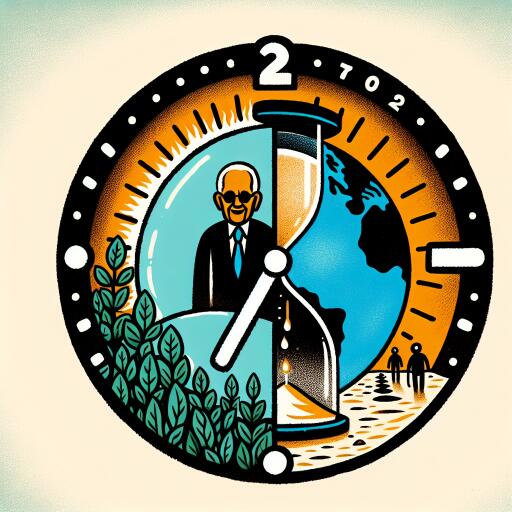
UN Climate Chief’s Urgent Plea: Two Years to Act on Climate Change
In a stark warning that has echoed around the globe, the United Nations’ top climate official has issued a clarion call stating humanity has a mere two-year window to enact meaningful measures against climate change. Simon Stiell, the Executive Secretary of the U.N. Climate Change agency, emphasized the urgent need to reduce the emissions that trap heat and to prioritize financial decisions that bolster the planet’s climate health. Despite the dramatic tone of his message, Stiell insists on the critical necessity for immediate action.
Stiell’s message is clear: “Everyone on this planet has exactly two years to save the world.” This statement highlights the growing demand across diverse societal and political groups for significant action on climate change, driven by the direct impacts felt in daily life and economic strains at the household level.
The focus of Stiell’s warning is particularly sharp on the G20 nations, which include a mix of the world’s largest economies, both developed and developing, such as the United States, China, and India. These countries are the source of approximately 80% of the emissions heating the planet. According to Stiell, this significant contribution to global emissions places a particular responsibility on these nations to lead the charge in implementing climate mitigation strategies.
However, the challenge of financing these crucial climate actions falls disproportionately on poorer nations. Excluding China, which identifies as a developing country, these nations face a daunting annual cost of $2.4 trillion to achieve their climate and development goals by the year 2030. This staggering figure underscores the financial inequalities that hamper global efforts to combat climate change.
Yet, not all reactions to Stiell’s warning have been supportive. Critics, including Princeton University’s climate scientist Michael Oppenheimer, question the effectiveness of such dire predictions. Oppenheimer suggests that declaring a two-year ultimatum to ‘save the world’ might be dismissed as mere rhetoric that could potentially undermine productive action rather than encourage it.
Data from the United States government highlights the growing challenge, showing that levels of carbon dioxide and methane – two of the most critical greenhouse gases – have hit record highs. The past year not only saw these unprecedented peaks but was also marked as the warmest on record, while global carbon emissions rose by 1.1%.
Without a significant reduction in emissions, Stiell warns of a deepening divide between the wealthiest and poorest nations and communities around the world. The stark reality is that, as things stand, global efforts are falling short of the emissions reduction targets needed to combat climate change effectively.
This urgent call to action from the UN’s climate chief serves as a reminder of the shared responsibility that rests on the shoulders of global citizens and leaders alike. It highlights the narrowing window for action and the profound consequences of inaction in the face of the climate crisis.





Leave a Reply